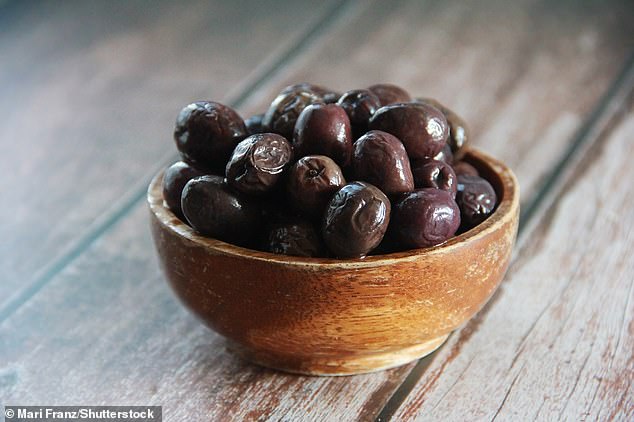The Hidden Truth Behind Black Olives in Supermarkets
When it comes to satisfying a salt craving, nothing quite hits the spot like a few olives. However, the next time you grab a can of black olives from the supermarket, you might want to take a closer look at the ingredients list. A viral video by Sophia Smith Galer, a British TikTok influencer and writer, has sparked a conversation about what’s really in those cans. She claims that black olives are not as natural as they seem, often relying on additives to achieve their dark color.
According to Galer, black olives are typically green olives that have been treated with a specific ingredient to make them appear black. This process involves using ferrous gluconate, an iron compound that gives the olives their uniform jet-black appearance. While this may sound alarming, it’s important to note that ferrous gluconate is approved as a food additive by regulatory bodies such as the UK’s Food Standards Agency and the US Food and Drug Administration.
The process of making black olives begins with green olives, which are picked before they fully ripen. To turn them black, they are often soaked in sodium hydroxide, a substance commonly used in food processing. This helps soften the olives and remove their bitterness. Lactic acid is also added to lower the pH and act as a natural preservative. However, the key player in achieving the black color is ferrous gluconate.
Galer explains that this additive binds to compounds in the olives, causing them to oxidize and turn uniformly black. As a result, many black olives sold in supermarkets are actually green olives that have been chemically altered. This means that the term “black olives” might be misleading, as the color is not naturally occurring.
Not all black olives contain ferrous gluconate, though. Some high-quality varieties are left to ripen naturally before being harvested and processed. These olives tend to be softer, sweeter, and less bitter than their artificially colored counterparts. For example, Beldi olives from Morocco, which are naturally wrinkled and cured in salt, offer a more authentic taste and texture.
Supermarkets like Waitrose, Asda, Sainsbury’s, and Tesco have been found to sell black olives containing ferrous gluconate. However, not every product in these stores will include the additive. Consumers can look for labels indicating that the olives were left to ripen naturally or opt for specialty brands that prioritize traditional methods.
Other Cases of Food Adulteration
The issue of food adulteration isn’t limited to olives. A 2020 study revealed that one in four sage samples sold in supermarkets contained leaves from other plants. Lab tests showed that over 25% of the samples were heavily mixed with leaves from different trees, with one sample containing just 42% actual sage. This highlights a broader concern about the authenticity of food products available in stores.
Consumers are encouraged to be mindful of what they buy and to check labels carefully. While some additives are safe and approved for use, others may raise questions about the quality and integrity of the products we consume. By staying informed, shoppers can make more conscious choices and support brands that prioritize transparency and natural production methods.







